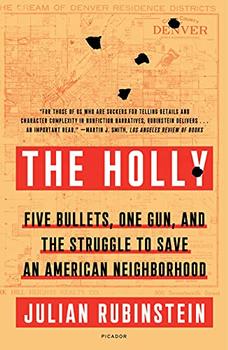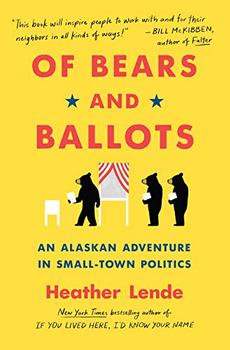Summary | Excerpt | Reviews | Beyond the book | Read-Alikes | Genres & Themes | Author Bio

Critics' Opinion:
Readers' Opinion:
First Published:
Feb 2020, 400 pages
Paperback:
Feb 2021, 400 pages
 Book Reviewed by:
Book Reviewed by:
Peggy Kurkowski
Buy This Book
One of the most riveting and touchingly human true crime stories in recent memory, Sierra Crane Murdoch's Yellow Bird: Oil, Murder, and a Woman's Search for Justice in Indian Country tells a deeply-researched and nuanced tale of two worlds colliding on the Fort Berthold Indian Reservation during the early days of the Bakken oil boom in North Dakota.
On February 22, 2012, Kristopher "KC" Clarke, an oil worker on the Fort Berthold Indian Reservation, went missing. For years after his disappearance, Clarke's biggest advocate wasn't the police, the FBI, or even the friends he left behind: it was Lissa Yellow Bird, a member of the Mandan, Hidatsa and Arikara Nation with a penchant for smelling a lie a mile away.
As a journalist based in the Midwest, Murdoch took an interest in the ongoing story of Clarke's disappearance in 2014 and soon crossed paths with Yellow Bird, then in her second year of amateur sleuthing on the case. Her account flows through the eddies and narrows of Lissa's personal history as each bend in the narrative brings the reader closer to understanding what happened to KC, but also what happened to an entire community at the mercy of a corrupt and singularly profit-focused industry.
The pulsating heartbeat of this story is the larger than life character of Lissa Yellow Bird, depicted powerfully by Murdoch. Born in 1968 in White Shield, North Dakota, Lissa was a wild spirit who fell under the sway of drugs early in her life, leading to her eventual incarceration for possession with intent to distribute in 2006. Released from prison in 2009, the newly rehabilitated Yellow Bird found herself struggling to stay sober and working to rebuild relationships with her five children, who were severely damaged by her years of addiction. In her clear-eyed new world, it is KC's disappearance in early 2012 that crystalizes Lissa's innate sense of justice and deep need to right wrongs, even as her own mistakes continue to haunt her.
Using her extensive knowledge of the "rez" and its people, Yellow Bird begins to search for KC in the summer of 2012. In chapters alternating between Lissa's amateur sleuthing attempts and the author's own scrupulously documented research into the poisonous effects of the oil boom on the Native American community, we see it is not only white men cashing in and dealing in questionable practices, but also hypocritical tribal council members and casino owners. Murdoch eloquently and painfully exposes how the wealth of the boom returns only in trickles to the poverty- and addiction-stricken indigenous communities of North Dakota.
As the story snakes towards its inevitable conclusion, the door opens wider on the startling number of American Indian women who go missing every year. Lissa's efforts do not stop with KC, as there are many more people who need finding, and their loved ones regularly reach out to her for help. It is a call the brave, compassionate and big-hearted woman cannot refuse. Indeed, Lissa Yellow Bird's search for justice has only just begun.
![]() This review was originally published in The BookBrowse Review in April 2020, and has been updated for the
February 2021 edition.
Click here to go to this issue.
This review was originally published in The BookBrowse Review in April 2020, and has been updated for the
February 2021 edition.
Click here to go to this issue.

If you liked Yellow Bird, try these:

by Julian Rubinstein
Published 2022
An award-winning journalist's dramatic account of a shooting that shook a community to its core, with important implications for the future

by Heather Lende
Published 2021
The writer whom the Los Angeles Times calls "part Annie Dillard, part Anne Lamott" now brings us her quirky and compassionate account of holding local office.





The Flower Sisters
by Michelle Collins Anderson
From the new Fannie Flagg of the Ozarks, a richly-woven story of family, forgiveness, and reinvention.

The House on Biscayne Bay
by Chanel Cleeton
As death stalks a gothic mansion in Miami, the lives of two women intertwine as the past and present collide.

The Funeral Cryer by Wenyan Lu
Debut novelist Wenyan Lu brings us this witty yet profound story about one woman's midlife reawakening in contemporary rural China.
Your guide toexceptional books
BookBrowse seeks out and recommends the best in contemporary fiction and nonfiction—books that not only engage and entertain but also deepen our understanding of ourselves and the world around us.